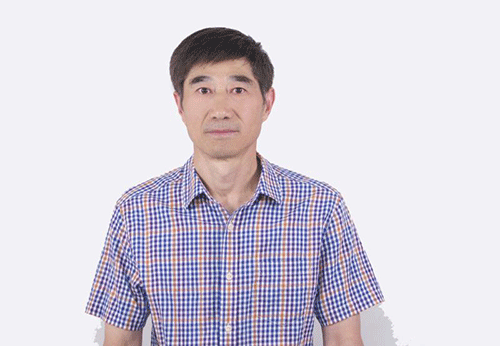Dr Yang Ganfu
In 2004, a new organisation bestowed with Buddhist believers and preachers landed on the African continent adding more value to already diversified African cultures and religions. This new organisation is called Amitofo Care Centre, which was first established in 2004 in Malawi. The founder of the organisation is Master Huili, a venerable Chinese Buddhist.
Thanks to Master Huili’s hardworking and dedicated contribution plus thousands of Asian donors’ generosity, seven Amitofo Care Centres have been established in six different African countries, namely, Eswatini, Lesotho, Madagascar, Malawi, Mozambique, and Namibia. Each centre has an affiliated school and employs a local team of caretakers and teachers who provide the children with not only education but socio-psychological support as well. Altogether, ACC Africa accommodates more than 5 000 vulnerable children from age four, who receive more daily needs, medical care, education, and food than their own families can afford.
Arguably, daily expenditure from these centres is becoming extremely high, posing a financial challenge to sustain. Addressing the challenge, Monk Huili travels a lot every year to meet and convince donors to help. These donors, mostly from Asian countries, are the sole sources of funds to support the operation and administration of ACC in Africa. I salute these selfless Buddhism followers and donors. It is because of their generous deeds of contribution that the African vulnerable children under the roof of ACC can receive essential daily needs, medical care, free education, and training, among others. Also worth noting is that all foreign staff (Chinese) working at ACC, including ACC Namibia, are volunteers, looking after the school pupils as their own children, another group of compassionate Buddhism observers. I salute them.
Equally, I admire Monk Huili, a devoted Buddhist. Without his selfless moral virtue, compassion, loyal Buddhist belief and empathy for the African children, there could have been no existence of ACC in Africa. Monk Huili plays a leading role in practising Buddhism by ending and freeing these children of material and spiritual suffering. Monk Huili pledges he will continue to end and free more and more African children of suffering by establishing ACCs in every African country. What a humanitarian virtue Monk Huili is.
Among its numerous programmes and projects, ACCs in Africa focus on building, operating, and maintaining facilities that serve as shelters and boarding schools for vulnerable and homeless children. ACC Namibia for instance has spent over N$100 million in its expenditure on building works, local staff salaries, food, transportation, education and agricultural development for sustainable consideration and training pilot projects. ACC has established a culture and environment through which the children taken in have an opportunity to grow and experience the beauty of life, give due respect to aged people, and show appreciation to those who offer helping hands, and who have kind and compassionate codes of conduct. Proudly, these ACC kids are becoming more followers of moral codes.
There is no statistic information of Buddhist population in Namibia. But certainly, the majority of the Asian/Chinese community in Namibia believe in Buddhism and practice Buddhism as well.
Located in Okahandja, Amitofo Care Centre/Yuanjue Private School has enrolled 230 vulnerable kids (Grade 1 to Grade 7 by now) from all over the country who enjoy free accommodation, food, transportation, uniforms, and medication, among others. Thanks to the compassionate staff members, teachers and caregivers, each kid in ACC Namibia grows happily and healthy.
Some have mastered basic martial arts (Gongfu) winning international awards, which demonstrates African kids’ talents. The most important change observed among the pupils is their moral codes of conduct, which will surely lay a solid foundation for their careers as nation-builders. These kids will make valuable contributions to national stability in future.
Amitofo Care Centre is no doubt the best example of Buddhist practice and beliefs: generosity, compassion, kindness, humanity and moral conducts. Beyond helping the children under its roof, ACC also collaborates with other community-based organisations in each country and offers helping hands to local communities by providing millions of meals a year (avg) to the vulnerable groups and other material assistance. ACC Namibia alone has donated 175 wheelchairs, 99 walking supports and 81 toilets, second-hand clothes, sanitary goods and a large bulk of food to the disadvantaged people, to the total tune of over N$1 million, thus contributing to the societal culture of loving hearts.
Practising Buddhism, ACC Africa aims to become a driving force to end and free marginalised and poverty-hit African children of suffering by providing quality education, and motherly care and furthermore to make them morally healthy people. Long live ACC Africa.
* Dr Yang Ganfu is an intercultural communication researcher and director of Africa Study at Lianyungang Development Institute, China.


